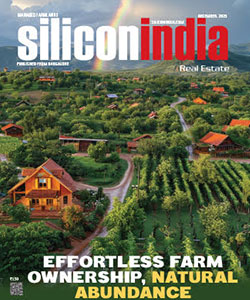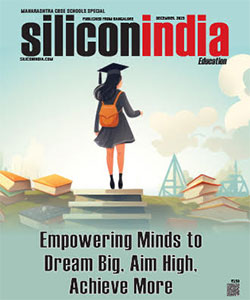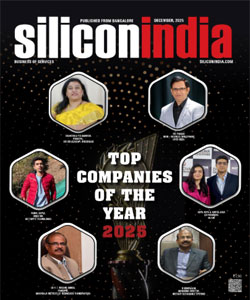Vikram Sarabhai Space Centre marks 60th anniversary of first rocket launch from Thumba
By
siliconindia | Monday, 20 November 2023, 09:40:58 AM IST

The Vikram Sarabhai Space Centre (VSSC) has planned a series of programmes to commemorate the 60th anniversary of the first-sounding rocket launch from Thumba on November 21, 1963. This event is considered to have marked the beginning of India's space age. On that day, an American-made Nike Apache rocket, carrying a French payload, took off from a then-little-known village in coastal Thiruvananthapuram. This launch carried the dreams and aspirations of a young nation that was not even two decades into its independence.
A Rohini series RH200 rocket will lift off from Thumba on November 25 in tribute to the first launch. Minister Jitendra Singh will inaugurate, with ISRO Chairman S. Somanath and officials in attendance. “From that first launch ISRO has come a long way in six decades; from sounding rockets to LVM3 (ISRO’s heftiest launch vehicle in operation), and from Low Earth Orbit (LEO) to Mars, and missions to study the moon, Mars and the sun,” VSSC director S. Unnikrishnan Nair told. ISRO has also expanded, establishing facilities including the Liquid Propulsion Systems Centre, the Satish Dhawan Space Centre (Sriharikota) and the Indian Institute of Space Science and Technology,” he said.
At this juncture, it is pertinent to recall the words of Vikram Sarabhai who said, “If we are to play a meaningful role nationally, and in the comity of nations, we must be second to none in the application of advanced technologies to the real problems of man and society, which we find in our country.’‘ Dr. Unnikrishnan Nair feels that ISRO has realized the vision of Dr. Sarabhai admirably, even venturing beyond it in its quest to explore space in greater detail.
Several important decisions and events preceded the first rocket launch from Thumba. Notably, the International Geophysical Year (IGY) observance from July 1957 to December 1958 and the formation of the Indian National Committee for Space Research (INCOSPAR) in February 1962. The latter event is widely regarded as the true starting point of space research in India.
The Thumba Equatorial Rocket Launching Station (TERLS) is a range established by the United Nations (UN) to conduct scientific studies of the upper atmosphere. Revenue officials in Kerala identified Thumba as one of eight potential sites, based on proximity to the geomagnetic equator. The list was narrowed down to Thumba and Vellanathuruthu, near Karunagapally, and Thumba was ultimately selected. The ISRO has a rich history surrounding how the St. Mary Magdalene Church - now a space museum - and surrounding land were surrendered by the church and local community to establish the facility.
As part of the lore, it is said that the Kerala Assembly was adjourned to let the members watch the rocket launch. According to the minutes of the Assembly on November 21, 1963, Shri Joseph Chazhikkattu said, "Sir, I have something to say. The first rocket from Kerala is about to be launched. I request you to allow us the facility to view it".
Read More News :
IT hardware PLI 2.0 approves 27 firms, including HP, Dell, and Foxconn
Financial Agility: Adapting to the Unexpected in Your Budget



